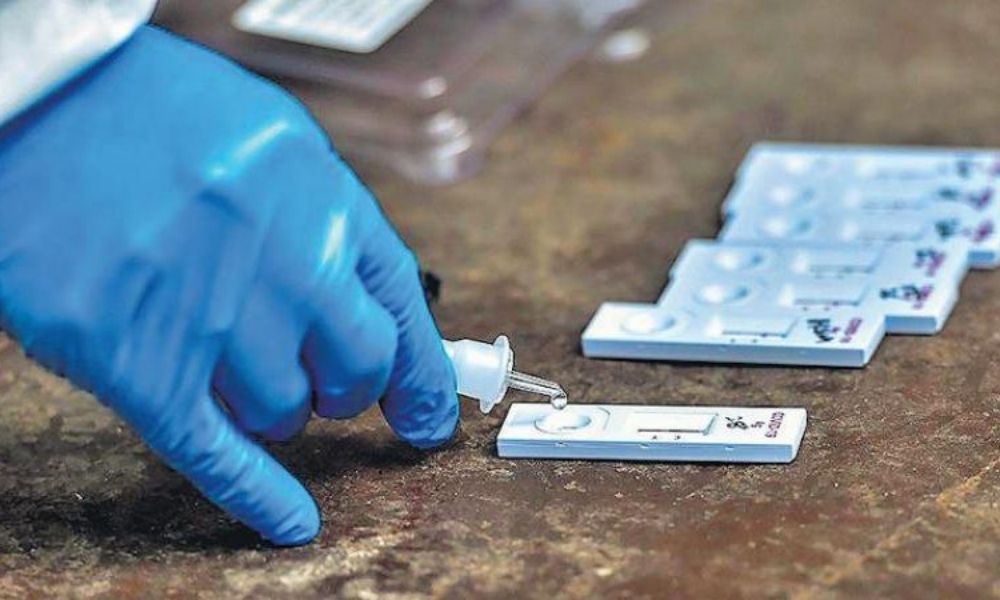
Image Credit: The New Indian Express
COVID-19: This Newly Developed RT-PCR Kit Has Greater Accuracy To Detect New Strains
Writer: Rishab Shaju
A passionate, confident, and energetic student, I am a workaholic with an interest in the field of Broadcast Journalism. I always make sure to meet my deadlines and can work well under pressure. Other than journalism, I am also interested in the field of Psychology and Literature. Timeliness and honesty are the two most important factors that define me. If not journalism, I would want to be a professor or a social worker.
India, 20 May 2021 9:54 AM GMT | Updated 20 May 2021 10:03 AM GMT
Editor : Rakshitha R |
Rakshitha an engineer turned passionate journalist with an inclination for poetry, creative writing, movies, fiction, mountains and seclusion. Not a part of the social process but existential.
Creatives : Rakshitha R
Rakshitha an engineer turned passionate journalist with an inclination for poetry, creative writing, movies, fiction, mountains and seclusion. Not a part of the social process but existential.
Developed by Sree Chitra Tirunal Institute for Medical Sciences and Technology (SCTIMST), this new RT-PCR kit targets two SARS CoV2 genes: RdRp and ORFb-nsp14, and the human RNAse P gene as the internal control to check the presence of mutant strains.
As the pandemic is going through the second wave in India with several variants, the selection of target genes in multiplex RT-PCR assay is becoming critical for the appropriate detection of the virus.
Recently, a new RT-PCR kit has shown greater accuracy of detecting COVID-19 across the various mutant strains of the virus. Although the coronavirus makes far fewer errors than other RNA viruses, the mutations in S, R and N genes often interfere with the RT-PCR assay. To elaborate this, a "variant of concern" B1.1.7, also known as the UK variant has a 69-70del, due to the deletion of 6 bases in its RNA. This has resulted in the S gene dropout from the RT-PCR assay.
Developed by Sree Chitra Tirunal Institute for Medical Sciences and Technology (SCTIMST), an Institute of National Importance under the Department of Science and Technology, this new RT-PCR kit targets two SARS CoV2 genes: RdRp and ORFb-nsp14, and the human RNAse P gene as the internal control to check the presence of mutant strains.
Several studies have revealed that the RdRp and ORFb-nsp14 genes are much more sensitive in detecting COVID as compared to other genes. To target, the new variants that were a major part of the second wave, using the RdRp and ORFb-nsp14 genes could give precise results. The ORFb-nsp14 is the least mutated genes in COVID and as of now, there are no kits in the market with ORF-nsp14 as a target.
The new RT-PCR kit is based on multiplex Taqman chemistry that amplifies all three genes in a single reaction. The amplification time for this assay is 45 minutes, excluding the time required for the RNA isolation from nasopharyngeal swab samples.
Currently, ICMR has validated the kit at the National Institute of Virology, Pune and found that it has 97.3 per cent sensitivity and 100 per cent specificity in COVID-19 detection. In addition to this, SCTIMST has signed a non-exclusive license MoU with Huwel Lifesciences, Hyderabad, on May 14, 2021, to commercialize this kit.
"This unique RT-PCR kit will be a significant weapon in our fight against COVID-19 by a facile detection of SARS-CoV-2 mutations which are becoming increasingly important," said Secretary, DST, Prof Ashutosh Sharma, as reported by The New Indian Express.
Also Read: How Did New Zealand Manage To Become COVID-19 Free? All You Need To Know
 All section
All section













